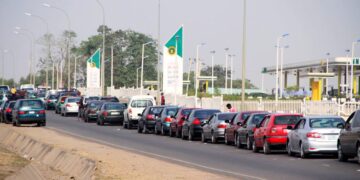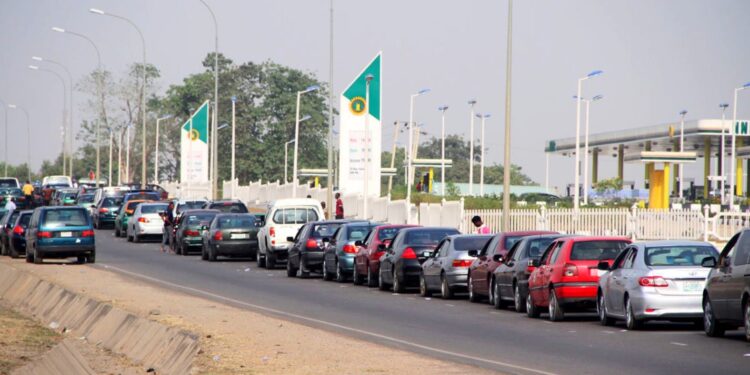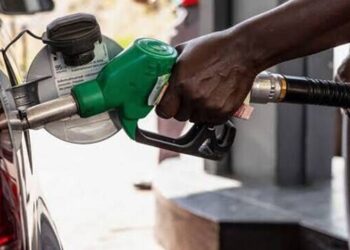By John Ikani
The Independent Petroleum Marketers Association of Nigeria (IPMAN) on Monday directed marketers across the country to begin dispensing petrol at N180 per litre and above.
Although the official price of petroleum in Nigeria is still fixed at N165 per litre, Nigerians are currently paying more as fuel scarcity hit many cities in the country.
IPMAN which started implementing a new price regime of between N170 to N190 at the weekend, insisted yesterday that it would be difficult for them to sell at the official pump price.
What IPMAN is saying
The marketers in a statement by its Lagos State Depot (LSD) Secretary, Akeem Balogun, said: “With the current price, there is no way we can sell less than N180 per litre.
“Members are hereby advised to sell at a sustainable price within their environment. Just make sure that the price is on your pump.
“Kindly contact the Secretariat should you have any authority challenging your operations.”
The development on Monday, June 20, 2022, led to fuel scarcity in Lagos as commuters were left stranded across the state due to the non-availability of commercial vehicles.
Many independent fuel stations were shut, while the few that opened for business had long queues of commercial drivers, motorists, motorcyclists, and jerrycan-carrying individuals who need to power their machines with petrol.
The long queues at fuel stations caused heavy traffic on Ikorodu Road, Ikoyi, Ikeja, Airport Road, Oshodi, Ejigbo, Egbeda, Ikotun, and Igando as many resorted to trekking to their destinations.
Fuel scarcity was also experienced in other cities like Abuja, Akure, Ado-Ekiti, Abeokuta, Jos, and many other cities across the country.
Reasons behind the scarcity
A source in the Major Oil Marketers Association of Nigeria (MOMAN) attributed the scarcity to a dislocation in the supply chain.
The MOWAN source, who pleaded anonymity, explained that when there is a disruption of the supply chain, it “takes an average of almost two weeks to get it back to normal.”
He added that NNPC Limited restored supply late yesterday, adding that motorists and commuters may have to cope till the “early part of next week when normalcy is expected to return.”
But IPMAN National Operations Controller, Mike Osatuyi, pointed out that the fuel being sold in the last one week by independent marketers was a part of the reserves they had.
He said: “Marketers have been loading from the stock they had and we are running low on the product because we haven’t received fresh supply. The situation will be worse if nothing is done urgently and when the old reserve we have runs out.”




































